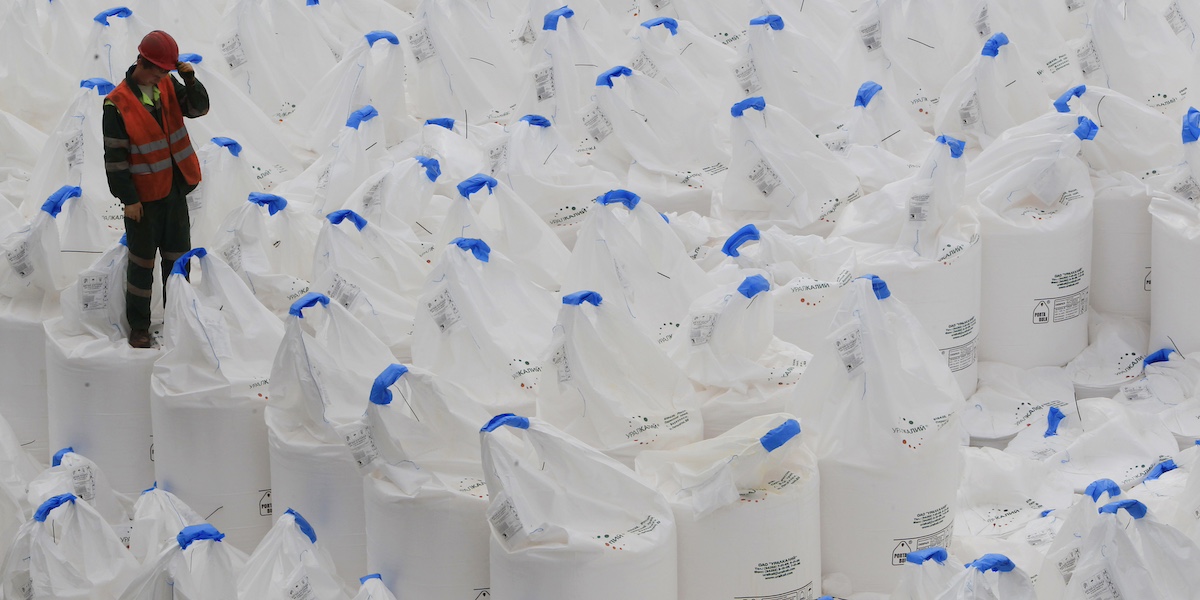Loading player
According to Eurostat, the statistical institute of the European Union, between 2022 and 2023, imports into the European Union of fertilizers produced in Russia have increased by 34 percent compared to the period before the Russian invasion of Ukraine, which began in February 2022. In particular, those of urea, one of the most common fertilizers, represent a third of the total imports of this product into the Union.
Although the trend has partially decreased in 2024, imports of Russian fertilizers into the Union are still higher than in 2021. For this reason, some European experts and producers they started to compare this new partial dependence to that which European countries had for Russian natural gas. In the months following the invasion of Ukraine, European countries had decided to greatly reduce imports of Russian gas, in an attempt to punish Russia for the invasion, and this had led to an energy crisis across Europe.
Over the last sixty years, fertilizers they have had a fundamental role in the so-called “green revolution”, which has allowed us to significantly increase the yield of the fields, allowing us to feed many more people all over the world. The most used fertilizers are those based on nitrogen, potash (potassium carbonate) and phosphates. Those based on nitrogen, such as ammonia and urea, are quite demanding to produce from an energy point of view, because They are made using natural gas. Overall, the price of fertilizers had started to increase significantly already in 2021, due to higher costs of energy and freight transport systems, mainly due to the coronavirus pandemic.
Then, at the beginning of 2022, Russia’s invasion of Ukraine made things even worse. Not only is Russia one of the world‘s leading fertilizer producers, but European fertilizer production was also heavily dependent on Russian gas imports: up to that point around 40 percent of European gas supplies were secured by Russia. With the start of the war, European Union governments had imposed sanctions on the purchase of Russian gas and tried to replace it as much as possible with that of other suppliers, in order to reduce energy dependence on a hostile and unreliable country. Initially, however, this had led to a temporary gas shortage in Europe, with a consequent increase in prices not only of energy, but also of fertilizers.
– Read also: The fertilizer crisis
To avoid further inconvenience to farmers and the entire supply chain, especially in the poorest European countries dependent on Russia, the European Union had decided not to impose sanctions on the purchase of fertilizers. Many countries have therefore increased their imports of this product from Russia, whose export revenues globally in this sector are increased by 70 percent in 2022 compared to 2021.
Although non-Russian fertilizer prices have since fallen thanks to the readjustment of natural gas prices, Russian imports now account for a larger share of the market. Furthermore, Russian fertilizers continue to cost less than those produced within the Union, not only due to the large availability of natural gas, but also because its producers have fewer constraints to respect regarding environmental sustainability.
According to Svein Tore Holsether, CEO of Yara International, one of the world‘s largest producers of nitrogen-based mineral fertilizers based in Oslo, Norway, this situation could soon become a political problem for the European Union.
Speaking with the Financial Times Holsether claimed that it is “a paradox” that Europe has tried to reduce its energy dependence on Russia, and now “we are sleepwalking towards the transfer to Russia of a fundamental power, such as that based on the production of fertilizers”. From his point of view, Holsether argued that a solution to this problem could be to increase incentives for farmers to encourage them to buy fertilizers produced in Europe, one of the demands also made by farmers themselves during the protests that took place in early 2024 ( although more generally European subsidies for this category are already very high).
The same opinion was expressed by Leo Alders, president of Fertilizers Europe, which represents most fertilizer producers. According to Alders, «if Europe wants to guarantee food sovereignty, it must maintain resistant national production chains, with a dependence on imports reduced to a minimum».
Other experts such as Josef Schmidhuber, economist at the UN Food and Agriculture Organization (FAO), they argue rather than this temporary dependence on Russian fertilizers will reduce itself over time, as recent drops in gas prices in Europe have led to a subsequent reduction in fertilizer production prices.
